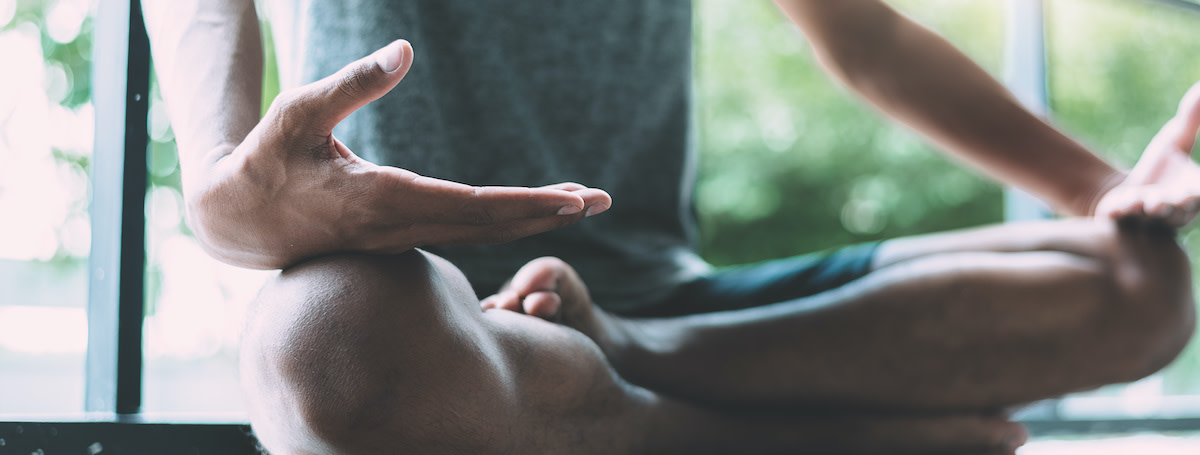Meditation for Sleep: How to Use Meditation to Get Better Sleep
Written by MasterClass
Last updated: Jun 7, 2021 • 3 min read
Meditation is an ancient practice of mindfulness and breathing that supports mental health and wellness. You can also use meditation as a remedy for sleep problems. Learn how to incorporate meditation into your bedtime routine.
Learn From the Best
How Can Meditation Help You Sleep?
Meditating before bed can help you wind down and fall asleep more easily. It can also play a part in balancing your body's autonomic nervous system, which helps prevent minor sleep disturbances from waking you up. Meditation helps treat stress, anxiety, and depression—all three of which may cause insomnia. Moreover, meditation may reduce your heart rate, decrease your blood pressure, and increase production of the sleep hormone melatonin.
Matthew Walker on Wind-Down Routines
3 Meditation Techniques for Better Sleep
There are three main meditation techniques that can help you with your sleep meditation practice:
- 1. Mindfulness meditation: This core meditation technique focuses on breathing and staying grounded in the present moment. It emphasizes taking a non-judgmental attitude toward distracting thoughts and emotions. To practice a mindfulness meditation, focus on the rhythm of your breath while counting to 10 full breaths (a full breath consists of one inhale and one exhale). When you reach 10 breaths, start back again at one. If at any time you notice part of your body feels tense, allow it to relax. If your mind wanders away to thoughts or emotions, simply take note and return to counting your breaths without judgement.
- 2. Body scan meditation: A body scan meditation involves a mental scan of every part of your body. This practice helps you heighten awareness of physical sensations, recognize tension in your body, and encourage muscle relaxation. To try a body scan meditation, lie down on the bed, take a few deep breaths, and close your eyes. While maintaining a consistent and natural breathing pattern, pay attention to how your body feels pressed against the bed. Beginning at the top of your head, slowly scan down your body to your toes. As you reach each body part, observe how that specific part feels, and relax it, if necessary. If your mind wanders to any other thoughts, shift your attention back to your body.
- 3. Guided meditation: A guided meditation is a session led by another person's voice, which is great for beginners. Guided sleep meditations generally feature relaxing sleep music and may prompt you to use visualization techniques.
4 Tips for Meditating Before Sleep
It will take some practice before you become fully comfortable meditating, and it may take some time before you notice a positive change in your sleep patterns. Consider these tips to help you practice meditation for a good night’s sleep.
- 1. Learn the basics. No matter which sleep meditation technique you choose, it’s helpful to begin by paying attention to your breath. Lie down on your back in bed, take deep breaths, and close your eyes. Focus on your natural breathing pattern, and refocus your attention back to your breath if your mind wanders. If you use a guided meditation, follow your guide's specific instructions.
- 2. Practice daily. As with any skill, meditation becomes easier the more you practice. To give yourself the best chance of success when meditating for sleep, meditate every night before bed. You may find it difficult at first, so begin with short five-minute sessions. As you become more comfortable, you can slowly increase your session length.
- 3. Maintain healthy sleep hygiene. Good sleep hygiene serves as the foundation for your sleep meditation sessions and helps you get consistent restful sleep. Sleep hygiene involves an assortment of habits that are conducive to getting good sleep on a consistent basis. Sleep hygiene centers around the notion that your daily behavior, particularly before bedtime, has a large impact on your overall quality of sleep. Some examples of good sleep hygiene include keeping a regular sleep schedule, establishing a bedtime routine, and avoiding midday caffeine and late-night alcohol.
- 4. Find what works best for you. There are several meditation techniques that can help you achieve better sleep, and some might work better for you than others. Test out each technique to see which ones you prefer.
Want to Learn More About Catching Those Elusive Zs?
Saw some of the best darn logs of your life with a MasterClass Annual Membership and exclusive instructional videos from Dr. Matthew Walker, the author of Why We Sleep and the founder-director of the Center for Human Sleep Science at the University of California, Berkeley. Between Matthew’s tips for optimal snoozing and info on discovering your body’s ideal rhythms, you’ll be sleeping more deeply in no time.
